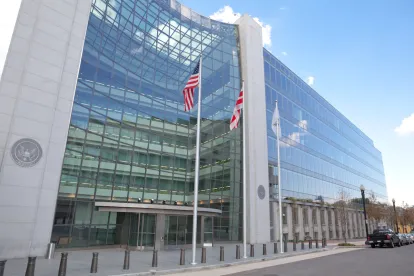On September 30, 2019, the SEC ordered an additional 16 self-reporting investment advisory firms to pay nearly $10 million in disgorgement. Some have referred to this as the “second wave” of the SEC Division of Enforcement’s Share Class Selection Disclosure Initiative (“SCSD Initiative”). It’s unclear if there will be another “wave” of SCSD Initiative settlements. What is clear, though, is that the number of self-reporting firms charged by the SEC so far totals ninety-five. When the SCSD Initiative was first announced many anticipated that the tally of firms charged would number in the hundreds, but the number remains under 100.
While the number of self-reporting firms is still significant and indicates that this was an industry issue, it may also signal that many firms elected to take their chances and not self-report. Along those lines, the SEC also announced that same day a settlement against a firm that did not self-report. Many will recall that the Division of Enforcement touted in the SCSD Initiative announcement and in public statements thereafter that qualifying firms that did not self-report could face significant penalties, additional charges, and possible charges against individuals. Yet, the settlement released with this “second wave” had none of that. The civil penalty ordered against this firm was not a multiple of the disgorgement amount–but rather a fraction–approximately one-third. This ratio is in the general range of the penalty-to-disgorgement ratios that the SEC typically seeks in standard settlements that do not involve the issue of whether a qualifying firm failed to self-report. That said, the order did specifically advise that the SEC considered the cooperation and remedial acts promptly undertaken taken by the respondent.
Many have voiced the opinion that the SCSD Initiative was a prime example of “regulation by enforcement.” Interestingly, on October 9, 2019, the President issued an “Executive Order on Promoting the Rule of Law Through Transparency and Fairness in Civil Administrative Enforcement and Adjudication.” While Executive Orders do not technically apply to the SEC, or other independent regulatory agencies, in practice the head of an independent regulatory agency may determine to honor the spirit and/or letter of a presidential directive.
This Executive Order provides:
The rule of law requires transparency. Regulated parties must know in advance the rules by which the Federal Government will judge their actions.
* * *
No person should be subjected to a civil administrative enforcement action or adjudication absent prior public notice of both the enforcing agency’s jurisdiction over particular conduct and the legal standards applicable to that conduct.
* * *
Sec. 4. Fairness and Notice in Administrative Enforcement Actions and Adjudications. When an agency takes an administrative enforcement action, engages in adjudication, or otherwise makes a determination that has legal consequence for a person, it may apply only standards of conduct that have been publicly stated in a manner that would not cause unfair surprise. An agency must avoid unfair surprise not only when it imposes penalties but also whenever it adjudges past conduct to have violated the law.
While this may not technically apply to the SEC, the tone and language of this Executive Order is similar to the views expressed by SEC Commissioner Hester M. Peirce in her SECret Garden speech at SEC Speaks this past spring. With the SCSD Initiative hopefully fading into the past, perhaps the leadership at the SEC will scrutinize “regulation by enforcement” initiatives in the future more closely.




 />i
/>i

